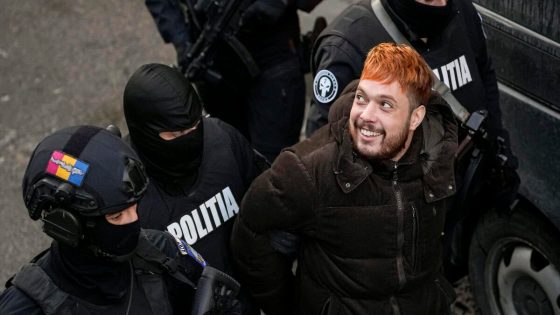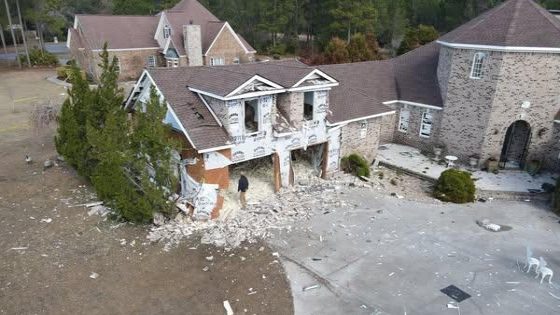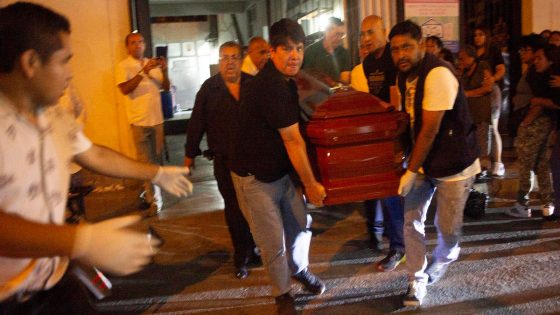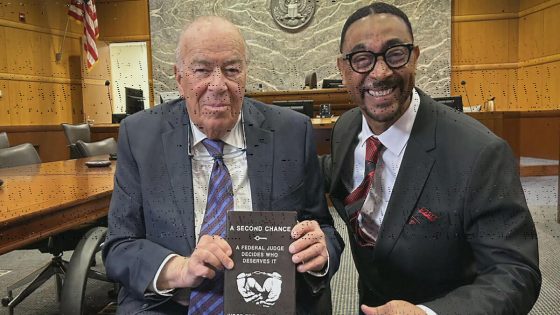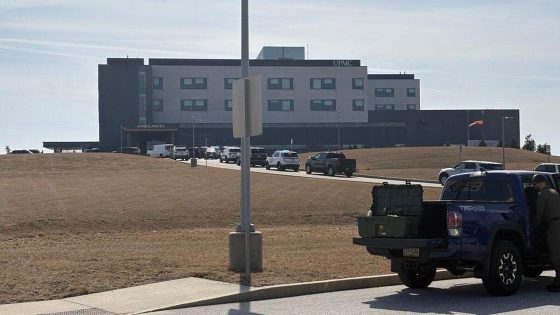In a dramatic turn of events that has captivated both France and Romania, Mohamed Amra, a notorious fugitive, was apprehended on February 22, 2025, in Bucharest, Romania. Amra, a 30-year-old French inmate, had been the subject of an international manhunt following his escape from a prison convoy in Normandy in May of the previous year, which resulted in the tragic deaths of two guards.
- Mohamed Amra arrested in Romania.
- French President hails successful capture.
- Ten accomplices arrested in connection.
- Amra linked to organized crime activities.
- New prison security measures proposed.
- Victims' families relieved by arrest.
Amra’s high-profile breakout raised alarm bells across Europe. His escape not only reflected the vulnerabilities within the prison system but also ignited fierce discussions about the safety of those who protect it. French President Emmanuel Macron hailed the capture as a “formidable success” and was quick to recognize the collaborative efforts of his European counterparts. In a fervent post on X, the French Interior Minister Bruno Retailleau expressed gratitude to “all the forces” which led to Amra’s arrest, emphasizing the coordination among various law enforcement agencies.
Amra was taken into custody following a meticulous operation by Romanian police in a bustling area near a shopping center. The authorities, alerted by their French counterparts, needed only 48 hours to track Amra down, illustrating the efficiency and seriousness with which this case was treated. “He respects the decision of the French authorities who want to put him on trial,” said his lawyer Maria Marcu, detailing Amra’s willingness to return, despite his claims of innocence regarding the charges leveled against him.
The backdrop to Amra’s escape is marked by violence and criminality. He was serving a sentence for burglary when he orchestrated his escape alongside armed accomplices. The ambush, captured on CCTV, shocked the nation and marked Amra as France’s most wanted. The grim reality of the situation became even clearer after Interpol issued a red notice for his arrest, following his brazen crime. Prosecutors revealed that Amra was already under investigation for serious offenses, including attempted murder and connections to Marseille’s notorious organized crime syndicates.
As authorities delved deeper into the investigation, they arrested ten individuals believed to be Amra’s accomplices, underscoring the extensive network that supported him during his period on the run. These suspects were primarily apprehended in Rouen and Evreux, where police executed raids and confiscated firearms. In the words of the Paris prosecutor, these individuals are suspected of having “helped in the preparation and execution of the escape” and subsequently assisted Amra in evading capture.
The high-stakes nature of this case highlights systematic flaws within the French prison system, which has been called into question repeatedly following Amra’s offense and subsequent escape. Justice Minister Gerald Darmanin responded to these concerns with a pledge for reforms, including the establishment of specialized “prison police” units and a high-security prison modeled after Italy’s anti-mafia laws. This new facility aims to isolate the “100 biggest drug traffickers” in France, thereby preventing criminal activities from continuing behind bars.
Amra’s criminal history paints a disturbing picture; he began his life of crime as a minor, with offenses escalating from petty thefts to violent crimes that spiraled into organized crime. Despite his youth, prosecutors noted that he had managed to establish significant criminal connections while still in his teens.
As the legal process unfolds, Amra’s case serves as a cautionary tale and a call to action for lawmakers and law enforcement alike. The families of the slain guards expressed a sense of relief following Amra’s capture, hopeful that his arrest might bring them some semblance of closure.
While Amra’s immediate fate lies with the legal system’s ability to prosecute him effectively for his past crimes, the broader implications of this case resonate deeply within France and its approach to crime prevention, prison reform, and public safety. With many eyes watching, the next steps in this unfolding saga remain critical not only for those directly affected but also for the intricate web of law enforcement and governance tasked with upholding justice.



